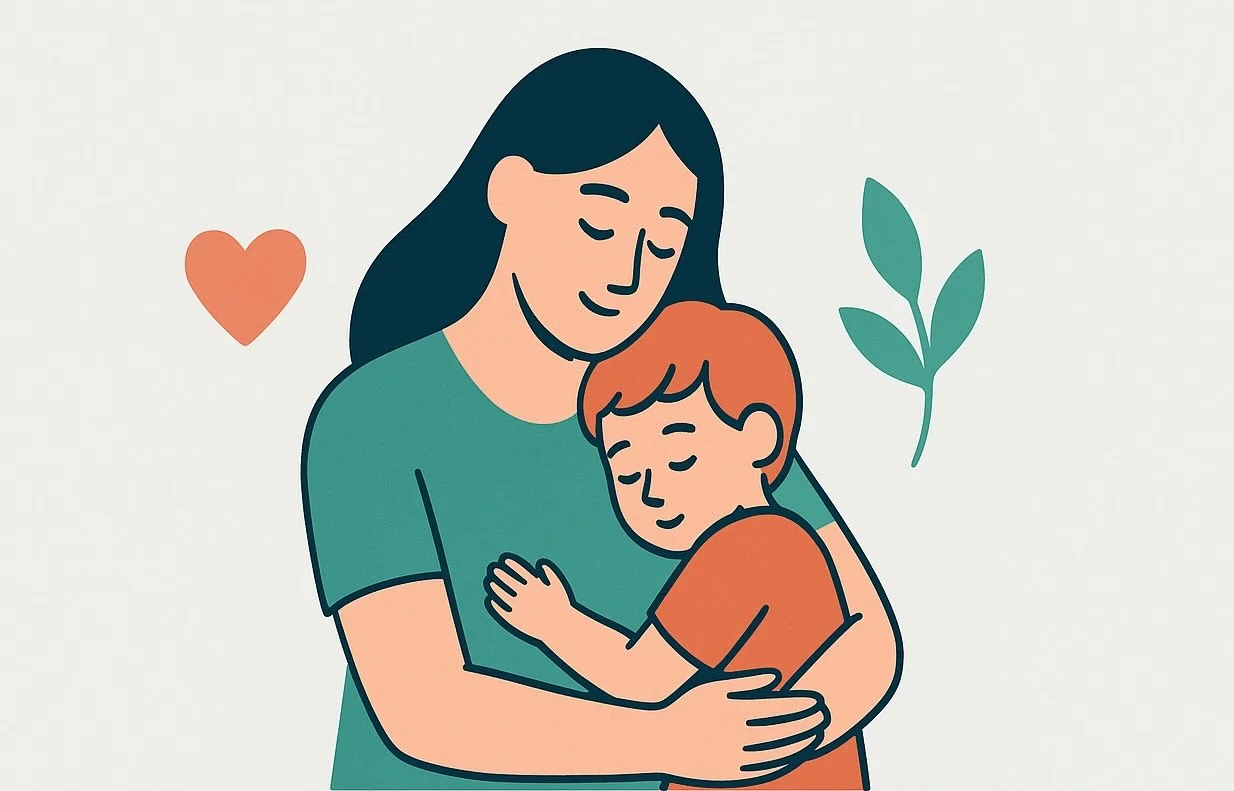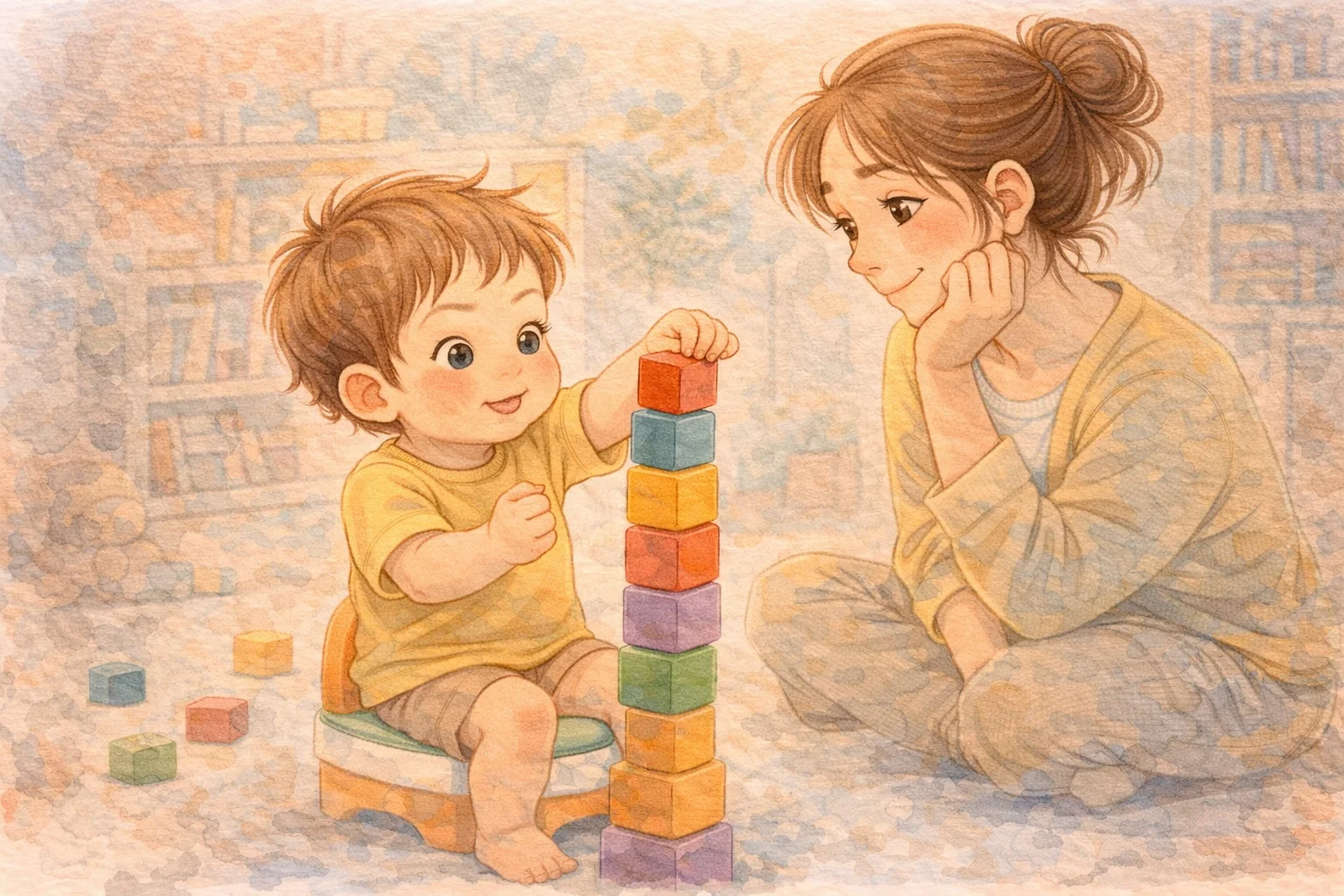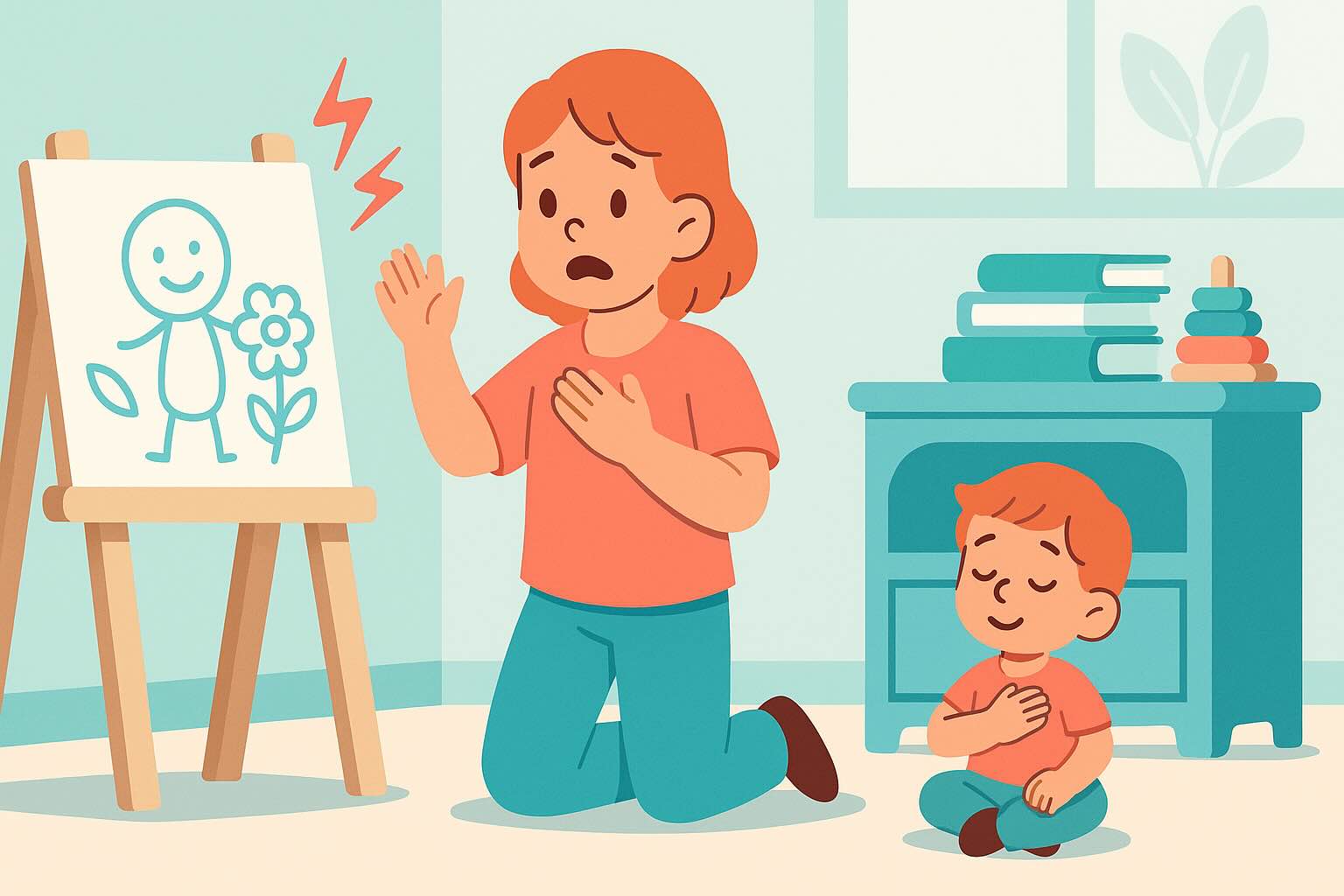7 Year Old Milestones: Complete Development Guide for Parents
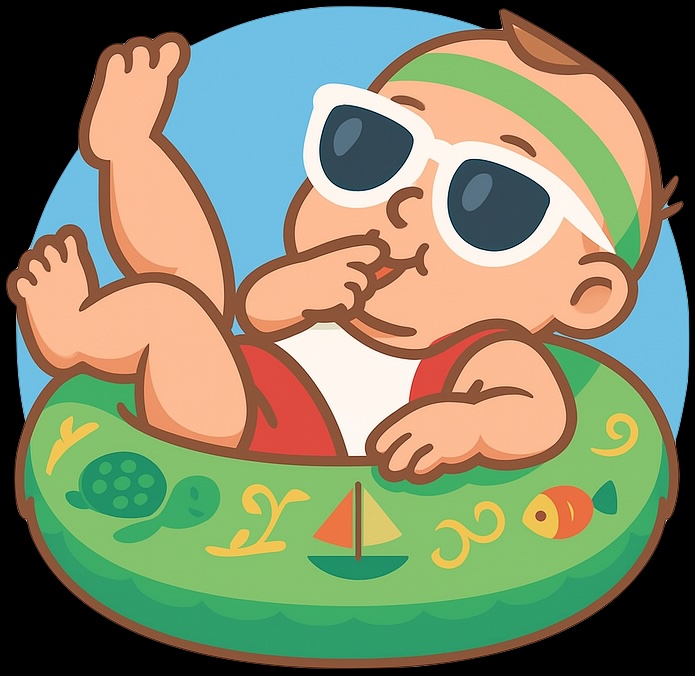
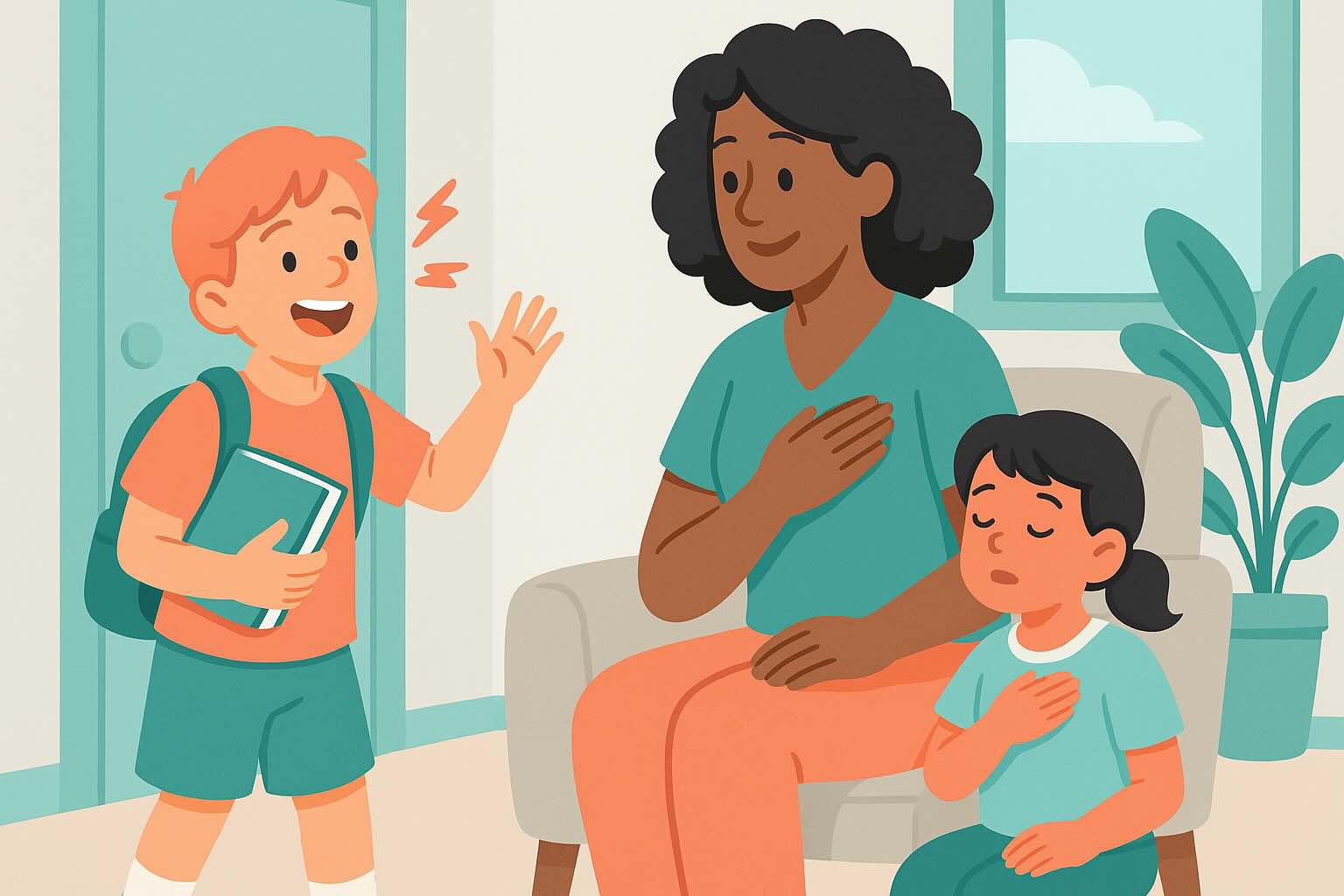
Your 7-year-old stands at a fascinating crossroads in development—no longer a young child, but not yet approaching adolescence. This year brings remarkable sophistication in thinking, emotional understanding, and social relationships. Understanding these developmental milestones helps you support your child's growth while recognizing their individual strengths and areas for continued development.
The Seven-Year-Old Developmental Leap
Seven represents a significant milestone in child development. Developmentally, this is when children typically demonstrate what psychologists call "concrete operational thinking"—the ability to think logically about concrete objects and situations. Your child is developing a solid sense of time, understanding complex rules, and showing genuine empathy for others.
This year your child becomes increasingly independent while still needing your guidance and support. They're forming stronger friendships, tackling more complex academic concepts, and developing their own sense of identity and preferences. The foundation skills developed at seven will support all future learning and relationship building.
Your 7-year-old is also beginning to understand fairness, justice, and social rules in more sophisticated ways. They can see situations from multiple perspectives and are developing the emotional maturity needed for meaningful friendships and academic collaboration.
Physical Development Milestones
Gross Motor Skills
Seven-year-olds demonstrate impressive physical coordination and increasing strength. Most children this age can:
Advanced Physical Abilities:
- Ride a bicycle confidently without training wheels
- Jump rope forward and backward with rhythm
- Skip smoothly and naturally
- Balance on one foot for 15+ seconds
- Walk on narrow beams or lines with control
- Throw and catch balls accurately with one hand
- Hit a ball with a bat or racquet
- Swim basic strokes (with instruction)
- Participate in organized sports with complex rules
- Demonstrate good spatial awareness during physical activities
Coordination and Strength:
- Show increased muscle strength and endurance
- Coordinate complex movements like dancing or gymnastics
- Perform multiple physical tasks simultaneously
- Display fluid, controlled movements in sports and games
- Demonstrate improved reaction time
- Show consistent hand and foot dominance
- Execute physical skills with planning and forethought
Physical Confidence:
- Try new physical challenges willingly
- Assess physical risks appropriately
- Show pride in physical accomplishments
- Understand body limitations and capabilities
- Demonstrate safety awareness during physical activities
- Show persistence when learning new physical skills
These physical advances reflect significant brain development in areas controlling movement coordination, spatial processing, and motor planning. Your child's growing abilities support participation in team sports, complex physical activities, and individual pursuits requiring sustained effort.
Fine Motor Skills
Small muscle control reaches sophisticated levels at age 7:
Precision and Control:
- Write clearly in both print and beginning cursive
- Draw detailed, recognizable pictures with many elements
- Cut intricate shapes and patterns with scissors
- Build complex structures with small pieces (LEGO, blocks)
- Use tools accurately (rulers, compasses, staplers)
- Manipulate small objects with precision
- Show consistent, efficient pencil grip and control
- Complete detailed craft projects independently
Academic Fine Motor Skills:
- Write for extended periods without fatigue
- Form letters consistently with appropriate size and spacing
- Erase and make corrections neatly
- Use mathematical tools (rulers, protractors) accurately
- Create detailed diagrams and illustrations
- Handle multiple writing instruments effectively
- Organize written work neatly on paper
- Complete standardized test forms appropriately
Daily Living Applications:
- Tie shoes quickly and efficiently
- Handle money and make change
- Prepare simple foods safely
- Use kitchen tools appropriately
- Care for pets or plants with precision
- Complete household tasks requiring dexterity
- Handle electronic devices and controls effectively
These fine motor achievements are essential for academic success, particularly as writing demands increase and academic projects become more complex in elementary school.
Cognitive Development Milestones
Academic Skills
Your 7-year-old's cognitive abilities support increasingly complex academic learning:
Advanced Reading Skills:
- Read chapter books appropriate for age level
- Understand story elements (plot, setting, character development)
- Make inferences and predictions about texts
- Recognize literary devices like rhyme and repetition
- Read fluently with appropriate expression
- Comprehend informational texts and extract key facts
- Use context clues to determine word meanings
- Self-correct reading errors independently
- Discuss books and make text-to-life connections
Mathematical Thinking:
- Understand place value to 100 and beyond
- Perform addition and subtraction with regrouping
- Understand multiplication and division concepts
- Solve word problems requiring multiple steps
- Understand fractions in concrete contexts
- Tell time to the nearest five minutes
- Count and use money effectively
- Understand measurement concepts (length, weight, capacity)
- Recognize and create patterns with multiple rules
- Collect and interpret simple data
Writing and Communication:
- Write coherent paragraphs with topic sentences
- Use appropriate grammar and punctuation consistently
- Spell common words correctly and use spelling strategies for new words
- Write for different purposes (stories, reports, letters)
- Edit and revise writing with guidance
- Use descriptive language and varied vocabulary
- Organize ideas logically in writing
- Write legibly for extended periods
Complex Thinking Skills
Seven-year-olds demonstrate increasingly sophisticated cognitive abilities:
Logical Reasoning:
- Think logically about concrete problems and situations
- Understand cause and effect relationships in complex scenarios
- Make decisions based on logical analysis
- Solve problems systematically using multiple strategies
- Understand conservation concepts (quantity remains the same despite changes in appearance)
- Think about problems from different perspectives
- Plan ahead for complex tasks and projects
Memory and Processing:
- Remember and apply complex rules and procedures
- Process information quickly and accurately
- Hold multiple pieces of information in mind simultaneously
- Transfer learning from one subject or situation to another
- Follow detailed, multi-step instructions independently
- Organize information effectively for learning and recall
- Make connections between different academic subjects
Abstract Thinking Development:
- Understand concepts of fairness and justice
- Think about hypothetical situations and their outcomes
- Understand time concepts more accurately (past, present, future)
- Grasp abstract concepts like honesty, loyalty, and responsibility
- Consider multiple solutions to problems
- Think about thinking (beginning metacognition)
- Understand different points of view on issues
The ability to think logically and systematically makes 7-year-olds ready for more complex academic content and independent learning strategies.
Language and Communication Development
Advanced Communication Skills
Seven-year-olds become sophisticated communicators with expanding language abilities:
Spoken Language:
- Use complex sentences with multiple clauses regularly
- Speak clearly and fluently in all situations
- Tell detailed stories with sophisticated plots and character development
- Use advanced vocabulary appropriately (10,000+ words)
- Modify language style for different audiences and purposes
- Use humor, sarcasm, and figurative language effectively
- Participate in complex discussions and debates
- Ask sophisticated questions to gain detailed information
- Express abstract concepts and complex emotions clearly
Conversation Skills:
- Engage in extended conversations on topics of interest
- Take turns appropriately in group discussions
- Build on others' ideas in conversations
- Use appropriate social language and etiquette
- Adapt communication style based on listener needs
- Handle disagreements in conversation maturely
- Show active listening skills consistently
- Initiate and maintain conversations with peers and adults
Academic Language Use:
- Use subject-specific vocabulary across academic areas
- Explain reasoning and problem-solving processes clearly
- Present information to groups effectively
- Participate actively in classroom discussions
- Ask questions to clarify understanding and gain deeper knowledge
- Use formal language appropriately in academic settings
- Connect ideas across different subjects and experiences
Advanced Language Understanding
Comprehension of complex language becomes increasingly sophisticated:
Complex Comprehension:
- Understand multi-layered stories with subplots and character development
- Process abstract concepts and philosophical ideas
- Understand humor, irony, and subtle language use
- Comprehend academic content across all subjects
- Follow complex directions with multiple steps and conditions
- Understand different meanings of words based on context
- Process information from multiple sources simultaneously
- Understand implied meanings and subtle communications
Literary and Academic Understanding:
- Analyze characters' motivations and development
- Understand themes and messages in literature
- Compare and contrast different texts and ideas
- Make inferences and draw conclusions from various sources
- Understand different genres and their characteristics
- Process informational texts and extract key concepts
- Follow logical arguments and reasoning
Seven-year-olds can engage in sophisticated academic and social discussions, analyze complex texts, and express themselves with increasing precision and sophistication.
Support advanced communication skills →
Social and Emotional Development
Emotional Maturity and Self-Understanding
Seven-year-olds show remarkable growth in emotional sophistication:
Emotional Intelligence:
- Identify and express complex emotions accurately
- Understand emotional nuances and mixed feelings
- Recognize emotional causes and consequences in themselves and others
- Use sophisticated coping strategies when upset
- Show genuine empathy and concern for others' well-being
- Handle disappointment and setbacks with increasing maturity
- Understand how emotions affect behavior and relationships
- Express emotional needs clearly and appropriately
Self-Regulation:
- Control impulses consistently across different situations
- Calm down independently when upset (typically within 10-15 minutes)
- Use problem-solving strategies before seeking adult help
- Handle frustration and challenges with perseverance
- Adapt behavior based on social expectations and contexts
- Show patience during delays and waiting periods
- Manage transitions and changes in routine smoothly
Self-Awareness and Identity:
- Understand personal strengths, interests, and challenges
- Show confidence in abilities while recognizing areas for growth
- Develop clear preferences and opinions
- Understand how behavior affects others and relationships
- Show pride in accomplishments without excessive boasting
- Accept feedback and constructive criticism appropriately
- Demonstrate growing independence in decision-making
Advanced Social Skills
Friendships and peer relationships reach new levels of complexity:
Friendship Development:
- Form close, lasting friendships based on shared interests and values
- Show loyalty and support for friends consistently
- Understand reciprocity in relationships
- Navigate friendship conflicts and repair relationships
- Show concern for friends' well-being and happiness
- Maintain multiple friendships simultaneously
- Understand different levels of friendship (acquaintances vs. close friends)
- Include others appropriately while maintaining close friendships
Group Dynamics:
- Work effectively in groups toward common goals
- Take leadership roles when appropriate
- Follow others' leadership respectfully and effectively
- Contribute ideas and listen to others' perspectives
- Navigate group conflicts and find compromise solutions
- Understand group rules and social hierarchies
- Show responsibility for group success and behavior
- Demonstrate good citizenship in school and community settings
Social Communication:
- Read social cues accurately and respond appropriately
- Use appropriate social skills across different contexts
- Show respect for authority while expressing own opinions
- Understand social rules and expectations
- Demonstrate good manners and social etiquette consistently
- Handle social rejection or disappointment maturely
- Show inclusive behavior toward peers with differences
Independence and Responsibility
Seven-year-olds demonstrate remarkable growth in independence:
Personal Responsibility:
- Complete daily routines independently without reminders
- Take responsibility for belongings and assignments
- Follow through on commitments and promises
- Show initiative in solving problems and completing tasks
- Accept consequences for choices and actions
- Take care of pets, plants, or household responsibilities consistently
- Manage time effectively for activities and assignments
Academic Independence:
- Complete homework assignments with minimal supervision
- Organize materials and workspace effectively
- Take responsibility for academic performance and seek help when needed
- Follow classroom rules and procedures independently
- Show initiative in learning and exploring new topics
- Set and work toward academic goals
- Take pride in academic achievements and effort
Explore advanced emotional development →
Advanced School Success Indicators
Academic Excellence
Seven-year-olds should demonstrate several key indicators of school success:
Learning Characteristics:
- Show genuine curiosity and love of learning
- Persist through challenging academic tasks
- Ask thoughtful, complex questions about subject matter
- Apply learning from one area to another effectively
- Show pride in quality work and academic achievement
- Seek out additional learning opportunities
- Demonstrate mastery of grade-level academic concepts
- Use effective study strategies and learning techniques
Classroom Leadership:
- Participate actively in all classroom activities and discussions
- Help classmates with academic and social challenges
- Show respect for learning environment and materials
- Demonstrate responsibility for classroom community
- Follow classroom procedures and routines independently
- Show enthusiasm for learning across all subject areas
- Take initiative in classroom projects and activities
Advanced Social-Emotional School Success
Success in elementary school increasingly depends on sophisticated social-emotional skills:
Classroom Social Skills:
- Build positive relationships with teachers and classmates
- Handle academic challenges and setbacks with resilience
- Show empathy and support for struggling classmates
- Demonstrate conflict resolution skills effectively
- Take responsibility for behavior and learning
- Show leadership in group projects and activities
- Contribute positively to classroom and school culture
Academic Emotional Skills:
- Handle academic pressure and expectations appropriately
- Show confidence in abilities while accepting areas for improvement
- Seek help when needed without excessive dependence
- Celebrate others' successes without jealousy
- Handle criticism and feedback constructively
- Show persistence and resilience during learning challenges
- Maintain positive attitude toward school and learning
Red Flags: When to Seek Professional Guidance
While children develop at individual paces, certain signs warrant discussion with your pediatrician, school counselor, or educational specialist:
Physical Development Concerns
- Significant delays in coordination compared to peers (can't ride bike, skip, or balance)
- Frequent accidents or injuries due to coordination problems
- Extreme difficulty with fine motor tasks required for school (writing, cutting, drawing)
- Significant fatigue during physical activities appropriate for age
- Regression in previously acquired physical skills
- Extreme reluctance to participate in physical activities
- Significant delays in strength or endurance development
Cognitive Development Concerns
- Reading significantly below grade level with little progress
- Difficulty understanding basic math concepts for grade level
- Cannot follow multi-step instructions consistently
- Significant problems with memory or attention across settings
- Difficulty with logical thinking and problem-solving
- Cannot complete grade-appropriate academic tasks independently
- Shows little progress despite appropriate instruction and support
- Significant difficulty organizing thoughts and materials
Language Development Concerns
- Difficulty expressing complex thoughts and ideas clearly
- Problems with reading comprehension significantly below peers
- Cannot engage in age-appropriate conversations
- Significant difficulties with written expression
- Problems understanding classroom instruction and discussions
- Cannot tell coherent stories or explain events logically
- Vocabulary significantly limited compared to peers
- Difficulty understanding abstract concepts and figurative language
Social-Emotional Concerns
- Cannot make or maintain appropriate friendships
- Shows extreme emotional reactions disproportionate to situations
- Significant difficulty regulating emotions across settings
- Extreme withdrawal from social situations or activities
- Persistent aggressive behavior toward peers or adults
- Cannot handle normal frustrations and disappointments
- Shows no empathy or concern for others consistently
- Extreme anxiety that interferes with school or social functioning
Academic Concerns in Context
- Performance significantly below grade level in multiple areas
- Shows little motivation or interest in learning
- Cannot work independently on grade-appropriate tasks
- Extreme difficulty with attention and focus during academic activities
- Significant problems completing assignments despite ability
- Cannot apply learned concepts to new situations
- Shows significant regression in academic skills
- Extreme avoidance of school or learning activities
When Professional Support is Beneficial
If you notice persistent concerns in multiple areas, or if your child shows significant delays compared to peers, consider consulting with:
- Your child's teacher for classroom-based observations and support
- School counselors for social-emotional concerns
- Your pediatrician for developmental evaluation
- Educational specialists for academic concerns
- Mental health professionals for emotional or behavioral concerns
Remember that seeking professional guidance is proactive parenting, not an indication of failure. Early support can make a significant difference in your child's long-term success and well-being.
Supporting Your 7-Year-Old's Development
Physical Development Support
Gross Motor Enhancement:
- Encourage participation in organized sports and team activities
- Provide opportunities for outdoor exploration and physical challenges
- Support individual physical interests (martial arts, dance, gymnastics)
- Create family activities that involve physical movement
- Encourage trying new physical activities and sports
- Focus on effort, improvement, and enjoyment rather than competition
Fine Motor Development:
- Provide varied art supplies and encourage creative projects
- Support detailed craft activities and building projects
- Encourage musical instrument practice (if child is interested)
- Provide opportunities for cooking and food preparation
- Support school projects requiring fine motor precision
- Encourage journaling, creative writing, and detailed drawing
Cognitive Development Support
Academic Enhancement:
- Read together regularly and discuss books in depth
- Encourage independent reading of chapter books
- Support homework with guidance while encouraging independence
- Provide educational experiences outside of school (museums, performances, nature)
- Encourage questions and provide detailed, thoughtful answers
- Support learning across subjects and help make connections
Critical Thinking Development:
- Play strategy games and complex puzzles regularly
- Encourage problem-solving in daily situations
- Ask open-ended questions about experiences and learning
- Support planning and organizational skills development
- Model logical thinking and decision-making processes
- Encourage research and exploration of topics of interest
Language Development Activities
Advanced Communication:
- Engage in sophisticated conversations about various topics
- Encourage storytelling, creative writing, and presentation skills
- Discuss current events, books, and ideas appropriately for age
- Play word games, riddles, and language puzzles
- Model sophisticated vocabulary and language use
- Encourage debate and discussion of different viewpoints
Academic Language Support:
- Discuss schoolwork using appropriate academic vocabulary
- Support reading comprehension through discussion and questioning
- Encourage writing for different purposes and audiences
- Help develop editing and revision skills
- Support presentation and public speaking opportunities
- Connect learning across subjects through language
Social-Emotional Development Support
Advanced Emotional Skills:
- Help identify and discuss complex emotions and situations
- Teach sophisticated coping strategies and problem-solving techniques
- Model emotional intelligence and empathy in your interactions
- Validate feelings while maintaining appropriate expectations
- Encourage emotional expression through various outlets (art, writing, discussion)
- Support development of emotional vocabulary and understanding
Social Skills Enhancement:
- Facilitate diverse social opportunities and friendships
- Discuss complex social situations and appropriate responses
- Model respect, kindness, and empathy in all relationships
- Teach advanced conflict resolution and negotiation skills
- Encourage participation in group activities and community service
- Support development of leadership skills and social responsibility
Independence Development:
- Gradually increase responsibilities and expectations
- Support decision-making skills while providing guidance
- Encourage problem-solving before offering solutions
- Help develop organizational and time management skills
- Support academic independence while remaining available for help
- Encourage pursuit of individual interests and goals
Learn more about supporting school success →
Common Parent Questions About 7-Year-Old Development
How can I tell if my child is academically on track for their grade level?
Regular communication with your child's teacher is the best way to assess academic progress. Look for steady improvement in reading fluency and comprehension, mathematical problem-solving, and writing skills. Your child should be able to complete grade-level work with appropriate effort and show enthusiasm for learning. If you have concerns, request a conference with the teacher to discuss specific areas of progress and any needed support.
Is it normal for my 7-year-old to be very competitive or concerned about fairness?
Yes, seven-year-olds often become very focused on rules, fairness, and competition. This reflects their developing sense of justice and logical thinking. They're beginning to understand complex social rules and may become upset when these aren't followed. Help them understand that fairness doesn't always mean identical treatment and teach them good sportsmanship in competitive situations.
How can I support my child's friendships without being intrusive?
Facilitate opportunities for social interaction through playdates, community activities, and school events. Be available to discuss friendship challenges when they arise, but allow your child to work through problems independently when possible. Teach social skills and conflict resolution, but avoid solving friendship problems for them. Focus on helping them develop empathy, kindness, and good communication skills.
Should I be concerned if my child shows perfectionist tendencies?
Some perfectionism is normal at this age as children become more aware of quality and standards. However, if perfectionism interferes with trying new activities, completing work, or enjoying achievements, it may need attention. Encourage effort over perfection, model making mistakes and learning from them, and help your child develop resilience and self-compassion.
How much independence should I expect from my 7-year-old?
Seven-year-olds should be quite independent in daily routines, self-care, and age-appropriate responsibilities. They should be able to complete homework with minimal supervision, organize their belongings, and handle basic problem-solving independently. However, they still need guidance, support, and supervision for safety and complex decisions.
What if my child seems to be maturing faster or slower than peers?
Children develop at different rates, and this variation is normal. Some children may excel academically while developing social skills, others might be socially sophisticated while working on academics. Focus on your individual child's progress rather than comparisons. If you have significant concerns about development in any area, discuss them with your child's teacher or pediatrician.
Fostering Advanced Learning and Growth
Academic Excellence
Support your child's academic development through:
Reading and Literature:
- Encourage reading across different genres and topics
- Discuss books in depth, analyzing characters, plots, and themes
- Visit libraries regularly and let your child choose books
- Model reading for pleasure and information
- Connect reading to real-world experiences and current events
- Support both independent reading and family reading time
Mathematical Thinking:
- Use math in daily activities and problem-solving
- Play mathematical games and puzzles
- Discuss mathematical concepts in concrete, visual terms
- Support homework while encouraging independent thinking
- Connect math learning to real-world applications
- Celebrate mathematical reasoning and problem-solving processes
Scientific Inquiry:
- Encourage questions about how things work
- Conduct simple experiments and investigations together
- Visit science museums and nature centers
- Support school science projects with enthusiasm
- Model curiosity and scientific thinking
- Connect scientific concepts to daily life
Character Development
Seven is an excellent age for developing character and values:
Moral Reasoning:
- Discuss ethical situations and moral choices appropriately
- Encourage empathy and consideration for others
- Model honesty, integrity, and responsibility
- Help your child understand consequences of choices
- Encourage service to others and community involvement
- Discuss fairness, justice, and treating others with respect
Personal Values:
- Help your child identify their own interests and values
- Encourage pursuit of meaningful goals and activities
- Support development of personal responsibility
- Model the values you want to see in your child
- Discuss family values and their importance
- Encourage reflection on choices and their impact on others
The Journey of Middle Childhood
Your 7-year-old is embarking on the remarkable journey of middle childhood—a time of significant growth in independence, capability, and self-understanding. This period between early childhood and adolescence is characterized by increasing sophistication in all areas of development.
The skills and characteristics developing now will serve as the foundation for all future learning and relationship building. Your child is becoming their own person with unique interests, capabilities, and perspectives, while still needing your guidance and support.
Key Developmental Themes:
- Growing independence balanced with continued need for guidance
- Increasing academic capabilities and love of learning
- Sophisticated friendships and social relationships
- Enhanced emotional intelligence and self-understanding
- Development of personal interests and talents
- Growing sense of responsibility and capability
Your Role in Supporting Growth:
- Provide appropriate challenges while ensuring success
- Balance independence with necessary support and guidance
- Show interest in your child's developing interests and capabilities
- Model the values and behaviors you want to see
- Maintain high but realistic expectations
- Celebrate individual growth and development
Your 7-year-old is developing into a capable, thoughtful, and increasingly independent person. By understanding their developmental needs and providing appropriate support, you're helping them build the foundation for future academic success, meaningful relationships, and personal fulfillment.
Embracing Individual Growth Patterns
Every 7-year-old develops along their own unique timeline, and this individual variation reflects the wonderful complexity of human development. Some children may excel in academic areas while developing social confidence. Others might demonstrate strong emotional intelligence while working on academic skills. This diversity is normal and reflects each child's unique strengths and developmental pattern.
Celebrate When Your Child:
- Shows persistence and effort in challenging situations
- Demonstrates kindness, empathy, and concern for others
- Takes initiative in learning and exploring new interests
- Shows responsibility for their belongings, commitments, and behavior
- Develops meaningful friendships and positive social relationships
- Expresses their thoughts, feelings, and ideas clearly
- Shows pride in accomplishments while remaining humble
- Demonstrates resilience when facing setbacks or disappointments
Provide Additional Support When:
- They seem overwhelmed by academic, social, or emotional expectations
- They show signs of perfectionism that interferes with trying new things
- They need help developing specific skills or overcoming challenges
- They benefit from breaking complex tasks into smaller, manageable steps
- They need more time or different approaches to master certain concepts
- They would benefit from additional resources, instruction, or support
- They need help developing coping strategies for stress or challenges
Your role as parent is to understand your child's individual needs while supporting their growth toward independence and capability. By recognizing typical development while honoring your child's unique timeline and strengths, you create the optimal conditions for their continued growth and success.
The seven-year-old journey is remarkable—characterized by sophisticated thinking, meaningful relationships, and growing independence. Trust in your child's ability to learn and grow, provide consistent support and encouragement, and celebrate the wonderful person they're becoming. This year lays important groundwork for all the exciting development and learning that lies ahead in the elementary school years and beyond.
Your 7-year-old is developing the academic skills, social competence, and emotional maturity that will serve them throughout their educational journey and into adulthood. By understanding their developmental needs and providing loving, consistent support, you're giving them the foundation they need to thrive as confident, capable, and caring individuals.
24/7 AI Parenting Assistant
Get instant, personalized advice with expert-curated parenting knowledge. Chat with your AI coach anytime, anywhere.

Expert Content Library
Access multimedia resources, articles, and expert-reviewed content organized by topics and your child's age.
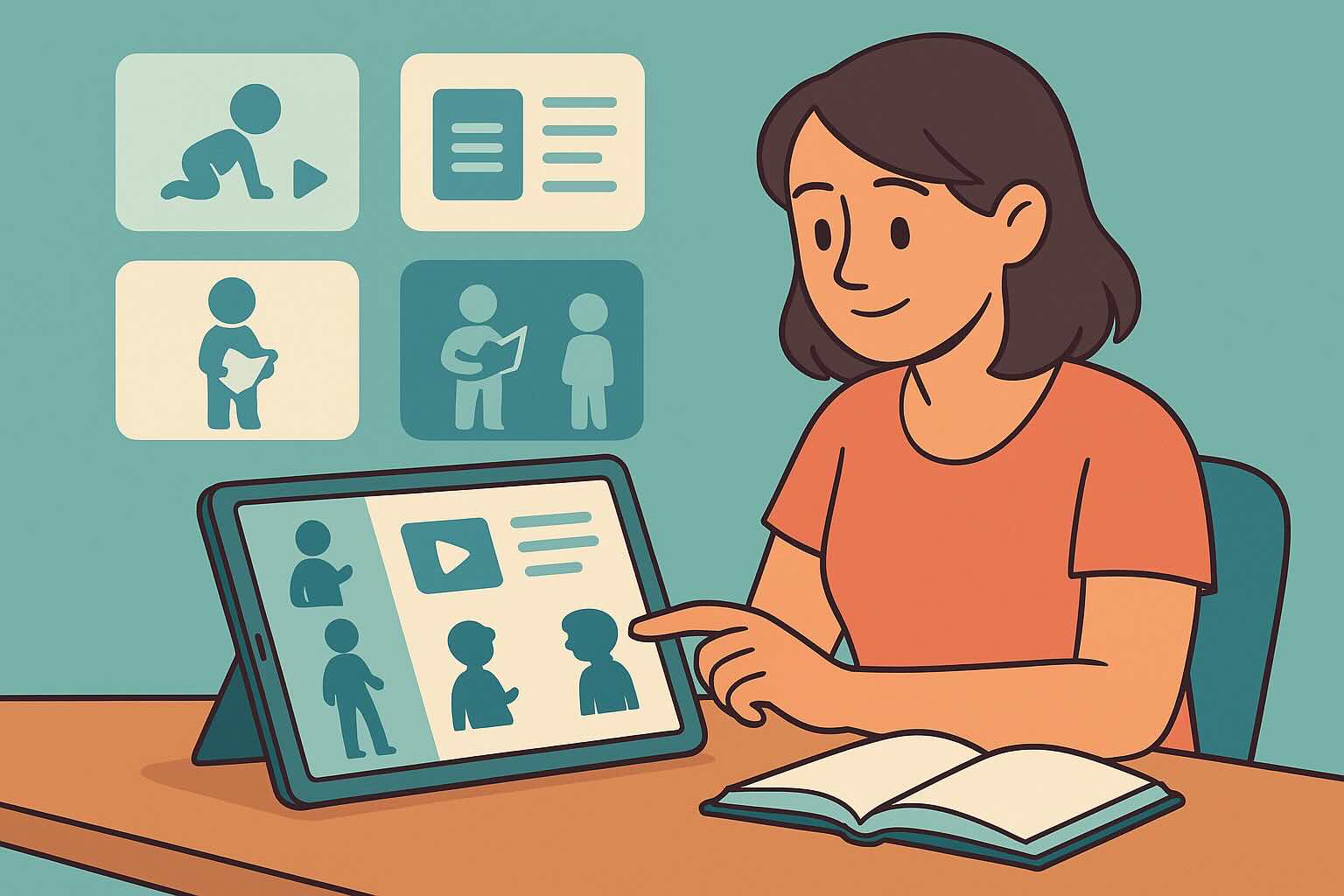
Connection Before Correction Toolkit
Daily practices and scripts to build strong parent-child relationships that make behavior guidance more effective.
Frequently Asked Questions
Need personalized support?
RootWise's AI coach can provide tailored strategies for your specific situation, available 24/7 when you need it most.
Learn More About AI Coaching →